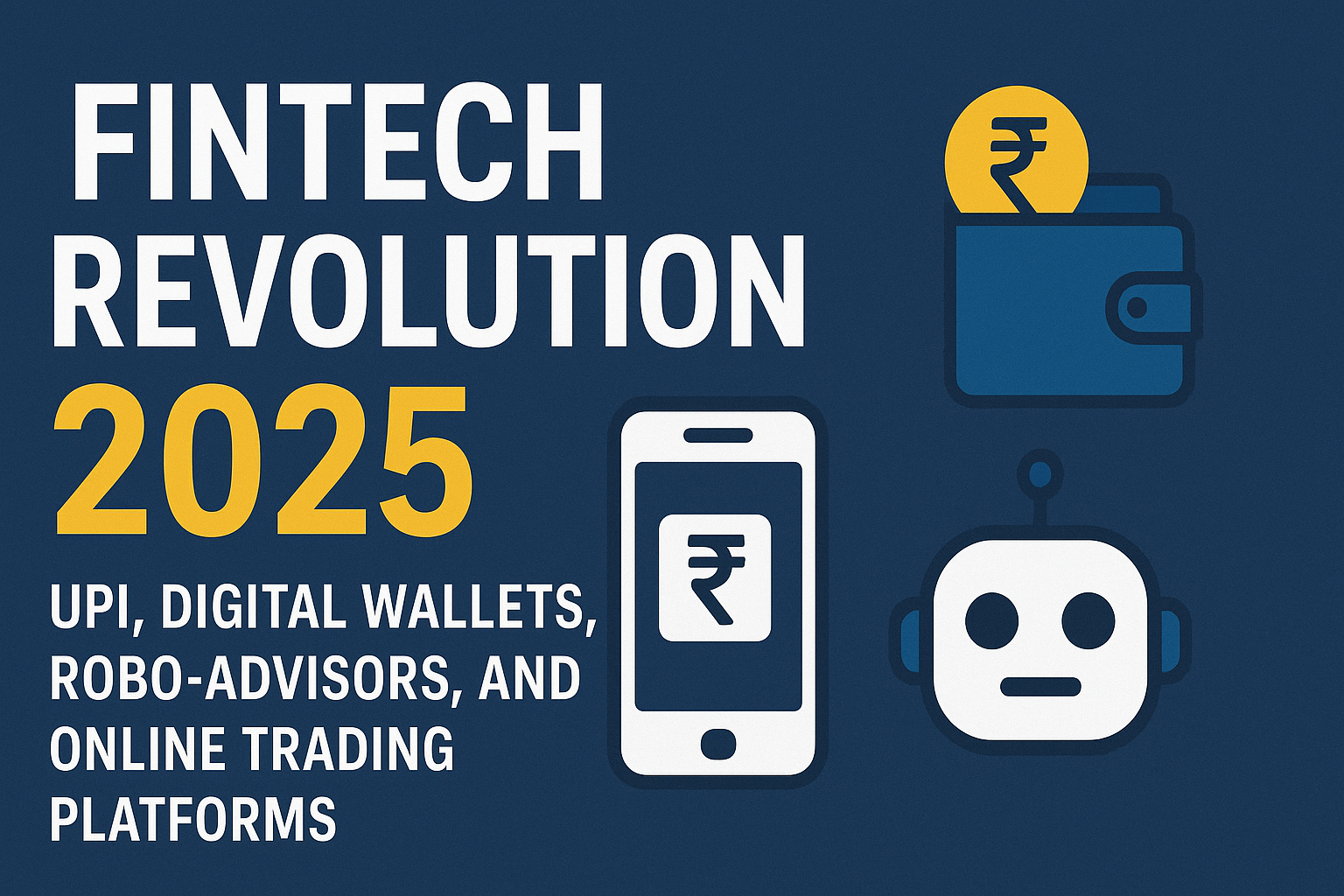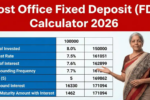In the past decade, Financial Technology (FinTech) has transformed the way people manage money, make payments, invest, and even borrow. In 2025, the FinTech revolution is stronger than ever, with innovations like UPI, digital wallets, robo-advisors, online trading platforms, and financial apps reshaping global finance.
From small businesses to everyday consumers, FinTech is making financial services faster, safer, and more accessible. Let’s dive into how these tools are redefining money management and what to expect in the near future.
1. UPI – India’s Digital Payment Backbone
Unified Payments Interface (UPI) is one of the biggest success stories in the FinTech space. Introduced in 2016, UPI has grown into a global benchmark for instant payments.
Why UPI is Popular in 2025:
- Instant Transfers: Money moves within seconds, 24/7.
- Interoperability: Works across banks and apps.
- Low Cost: Zero or minimal transaction fees.
- Global Expansion: Countries like Singapore, UAE, and France now accept UPI payments.
- Future of UPI: With UPI Lite and credit-on-UPI, it’s becoming a complete ecosystem for both small everyday transactions and large financial dealings.
2. Digital Wallets – Beyond Just Payments
Digital wallets like Paytm, PhonePe, Google Pay, and Amazon Pay are no longer just for mobile recharges or bill payments. In 2025, they have become mini financial hubs.
Features Offered by Digital Wallets Today:
- Utility bill payments and QR-based transactions
- Insurance purchase and premium payments
- Small-ticket loans and credit lines
- Investment in gold, mutual funds, and SIPs
- Cashback and rewards programs
- Advantage: Digital wallets bring convenience by acting as a one-stop financial shop right from your smartphone.
3. Robo-Advisors – AI-Driven Wealth Management
Investing and financial planning used to require a human financial advisor. Now, robo-advisors powered by Artificial Intelligence (AI) and algorithms make wealth management affordable and accessible.
Benefits of Robo-Advisors:
- Low fees compared to traditional advisors
- Automated portfolio rebalancing
- Personalized investment strategies based on risk profile
- 24/7 availability and transparent performance tracking
- Example: Apps like Zerodha’s Niyami, Groww Wealth, and international players such as Betterment and Wealthfront are helping millions invest without needing deep financial expertise.
4. Online Trading Platforms – Democratizing Investments
Earlier, stock market investing was limited to brokers and high-net-worth individuals. Today, online trading platforms have made it possible for anyone with a smartphone to start investing.
Top Features of Online Trading Platforms in 2025:
- Zero or low brokerage fees
- Real-time stock tracking and analytics
- Access to global markets (US stocks, ETFs, crypto)
- Educational resources for beginners
- Integration with UPI and digital wallets for instant funding
- Popular Platforms in India: Zerodha, Groww, Upstox, and Angel One.
Global Leaders: Robinhood, eToro, Interactive Brokers. - These platforms are driving financial literacy and giving retail investors more power.
5. FinTech Apps – All-in-One Money Management
FinTech apps have become digital companions for managing money effectively. From expense tracking to credit scoring, they simplify personal finance.
Types of FinTech Apps in 2025:
- Budgeting Apps: Track spending (Walnut, Money View)
- Credit Monitoring Apps: Check and improve CIBIL scores (CRED, OneScore)
- Lending Apps: Get instant loans (KreditBee, PaySense)
- Investment Apps: Mutual funds, SIPs, and ETFs (Groww, ETMoney)
- Insurance Apps: Buy and compare policies (Policybazaar, Acko)
- Pro Tip: Choose apps that are RBI-compliant and have data encryption to avoid fraud risks.
6. The Impact of FinTech on Businesses
FinTech is not just benefiting individuals—it’s also empowering businesses, especially startups and small enterprises.
How Businesses Use FinTech in 2025:
- Digital Payments: Faster customer transactions via UPI/QR codes
- Invoice Financing: Quick access to working capital
- Payroll & Accounting Apps: Automated bookkeeping and salary disbursal
- Cross-Border Payments: Low-cost remittances through blockchain-based systems
- For small businesses, FinTech means lower costs, higher efficiency, and global reach.
7. Future Trends in FinTech
- The FinTech industry is still evolving rapidly. Here are some emerging trends for 2025 and beyond:
- Blockchain & DeFi (Decentralized Finance): More transparency and security.
- CBDCs (Central Bank Digital Currencies): Countries experimenting with digital versions of their currency.
- AI & Machine Learning: Smarter fraud detection and financial forecasting.
- Biometric Security: Fingerprint, facial recognition, and voice authentication for safer transactions.
- Embedded Finance: Banking services integrated directly into non-financial apps (shopping, travel, healthcare).
8. Risks & Challenges in FinTech
- Despite its advantages, FinTech also faces challenges:
- Cybersecurity Risks: Hackers target financial data.
- Regulatory Compliance: Governments constantly update laws.
- Digital Illiteracy: Many rural users still struggle with digital banking.
- Fraudulent Apps: Fake apps misusing customer trust.
Solution: Always use verified apps, enable two-factor authentication, and keep track of RBI/SEBI regulations.
Final Thoughts
Also Read : Fixed Deposit vs Recurring Deposit: Which is Better for Your Money in 2025?
In 2025, FinTech is no longer optional—it’s essential. From UPI and digital wallets for daily payments to robo-advisors and trading platforms for wealth creation, technology is reshaping how we earn, spend, save, and invest.
As digital adoption grows globally, FinTech will continue to expand, making financial services more inclusive, transparent, and efficient. The key is to stay updated, adopt secure platforms, and leverage these tools to build a stronger financial future.






